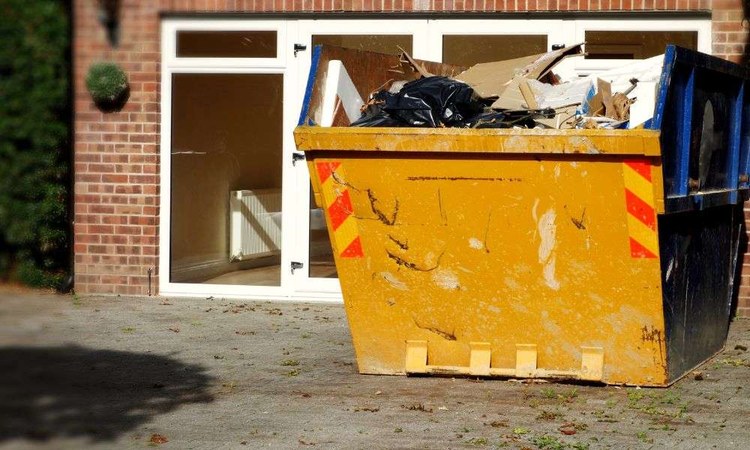Dumpster Rental: A Comprehensive Guide to Managing Large-Scale Waste
Dumpster rental services provide an efficient solution for handling substantial amounts of waste during various projects. Whether you're renovating your home, clearing out a commercial space, or managing a construction site, renting a dumpster can streamline your waste disposal process. This article will explore the ins and outs of dumpster rental, helping you understand how to choose the right service for your needs.

How do you choose the right dumpster size?
Selecting the appropriate dumpster size is crucial for efficient waste management and cost-effectiveness. Dumpsters are typically measured in cubic yards, with common sizes ranging from 10 to 40 cubic yards. To determine the right size for your project, consider the following factors:
-
Type of waste: Different materials have varying densities, affecting how much can fit in a given container.
-
Project scale: Larger projects generally require bigger dumpsters.
-
Available space: Ensure you have enough room on your property to accommodate the dumpster.
-
Weight limits: Be aware of weight restrictions imposed by rental companies and local regulations.
For small home cleanouts or minor renovations, a 10 or 20-yard dumpster may suffice. Larger construction projects or complete home renovations might require a 30 or 40-yard container. It’s always better to err on the side of caution and choose a slightly larger size if you’re unsure.
What materials can be disposed of in a rented dumpster?
While dumpster rentals offer a convenient way to dispose of various materials, it’s essential to understand what can and cannot be placed in these containers. Generally accepted items include:
-
Construction debris (wood, drywall, concrete)
-
Household junk and furniture
-
Yard waste
-
Appliances (in some cases)
However, many materials are prohibited due to environmental or safety concerns:
-
Hazardous waste (paint, chemicals, batteries)
-
Electronics
-
Tires
-
Asbestos
-
Flammable materials
Always check with your rental provider for a comprehensive list of accepted and prohibited items, as regulations may vary by location and company.
How long can you keep a rented dumpster?
The rental duration for a dumpster typically ranges from a few days to several weeks, depending on your project needs and the rental company’s policies. Standard rental periods often include:
-
Short-term rentals: 3-7 days
-
Weekly rentals: 7-14 days
-
Extended rentals: 14-30 days or more
Many companies offer flexible rental periods and can accommodate extensions if needed. However, it’s important to communicate your expected timeline upfront to avoid additional fees or scheduling conflicts. Some providers may offer discounts for longer rental periods, so inquire about pricing options if you anticipate needing the dumpster for an extended time.
What are the costs associated with dumpster rental?
Dumpster rental costs vary based on several factors, including dumpster size, rental duration, location, and disposal fees. To give you a general idea of pricing, we’ve compiled a comparison of average costs from various providers:
| Provider | Dumpster Size | Average Cost (7-day rental) | Additional Fees |
|---|---|---|---|
| Waste Management | 20 yard | $350 - $525 | Overage fees, prohibited items |
| Budget Dumpster | 20 yard | $300 - $450 | Weight limits, extended rental |
| Bin There Dump That | 20 yard | $375 - $550 | Delivery distance, late return |
| 1-800-Got-Junk | 20 yard | $400 - $600 | Variable pricing based on location |
Prices, rates, or cost estimates mentioned in this article are based on the latest available information but may change over time. Independent research is advised before making financial decisions.
When budgeting for your dumpster rental, consider potential additional costs such as:
-
Overage fees for exceeding weight limits
-
Extended rental fees for keeping the dumpster longer than agreed
-
Permit fees if required by your local municipality
-
Fuel surcharges or delivery fees for remote locations
To get the best value, compare quotes from multiple providers and inquire about any promotions or discounts they may offer.
How can you maximize the efficiency of your dumpster rental?
To make the most of your dumpster rental and potentially save on costs, consider these tips:
-
Plan your project carefully to accurately estimate the required dumpster size and rental duration.
-
Sort materials before loading to optimize space and comply with disposal regulations.
-
Load the dumpster evenly to distribute weight and maximize capacity.
-
Break down large items when possible to reduce wasted space.
-
Consider sharing the dumpster with neighbors or other projects if allowed by the rental company.
By following these guidelines and understanding the nuances of dumpster rental services, you can effectively manage your waste disposal needs while keeping costs in check. Whether you’re tackling a home renovation, coordinating a community cleanup, or overseeing a construction project, renting a dumpster can significantly streamline your waste management process.






